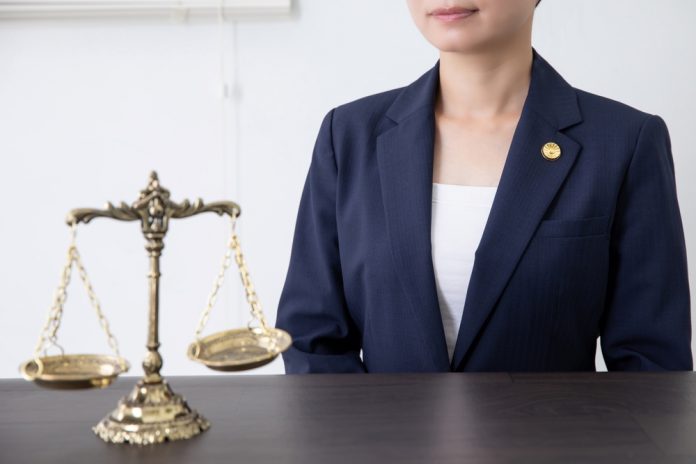This article has been written by Mariya Khan and edited by Shashwat Kaushik. In this article, two case laws have been discussed thoroughly which draw the attention of the courts to protect the fundamental right to change or keep a person’s surname.
Introduction
The Indian Constitution has given us diverse fundamental rights, from Article 12 to 35. Article 21 has resulted in the most crucial one for our day-to-day lives, which states that “no person shall be deprived of his life or personal liberty except according to a procedure established by law.” Thus, Article 21 secures two rights: the right to life and the right to personal liberty. The right to life and personal liberty can not be taken away from us even in an emergency. Along with that, it imposes a restriction that says if such rights interfere with the procedure established by law, then such law can be struck down.
The right to change or keep one’s name also falls under Article 21 of the Constitution of India; everyone has the right to identify by name as per his preference or choices and authorities cannot take such rights.
“The human name is an inviolable part of someone’s life, and a crucial device for the human ethnicity to enter into social groups and flourish as a race,” Justice Bhanot said.
Therefore, one can change their surname when women get married and receive their husband’s surname and adoptive children receive their adoptive parent’s surname but a person is not allowed to change their name/surname at their will because one’s surname reflects the caste of that person and one can change their caste at their will.
Sadanand & Anr. vs. CBSE & Ors. (2018)
Facts of the case
In this case, a writ petition was filed under Article 226 of the Constitution, which mentioned the power of the High Court to provide constitutional remedy by the two residents of Delhi who are brothers with their breach of fundamental rights against the letter issued by the Central Board of Secondary Education in June 2017 rejecting the application for the change of their surname name from the marks certificate of 10th and 12th standard.
At the time of giving examinations in 10th and 12th grade, their surname was “Mochi.” They belonged to backward communities, and their surname was a factor in indicating that they were from that particular group of people. Because of this, they and their father were not treated as well as the average person expects. Their father was determined to switch his surname from “Laxman Mochi” to “Laxman Naik” and fulfil the prerequisite conditions, such as notifying the government in the gazette and giving notice in newspapers.
The Central Board of Secondary Education gave the reason behind rejecting the application, changing their surname would mean a change in their caste, which could be misapplied.
Issues involved in the case
The following issues were to be decided by the Delhi High Court:
- Does the right to change one’s surname come under the ambit of Article 21 or not?
- Will a change of surname lead to a change of caste as well?
- Will reservations apply to a person who changed their surname to a lower caste?
Observations of the Court
- The Court noted that the father of the petitioners has already fulfilled the requisite procedure required in the process of changing names, such as notifying the masses in any well-known newspaper and publicising in the Gazette for objections, if any. The surname of the petitioner was duly changed in all other legal documents issued by the administration.
- The Court also brought to light the issue of bigotry and prejudice against the lower caste people and stated that every individual in a democratic country like India has a full right to live with dignity and an honourable life, and if he suffers any disadvantage on account of his surname or name, he can do all such things to remove impartiality, including changing their surname.
- After noting the facts and circumstances, the Court opined that the rejection was done unjustly. Therefore, there is no ground for denying making changes to the mark sheet certificate of the petitioner.
Judgement of the Court
Hon’ble Justice Mini Pushkarna of the Delhi High Court gave the verdict that the right to change name is the personal right of the individual guaranteed under Article 21 of the Indian Constitution and can not be denied for any reason whatsoever. It is permissible to not be identified by any particular caste based on the surname of the individual ‘which causes prejudice’ to such person.
The Court also clarified that a change of surname does not change the caste of the individual and will not lead to any benefits that may be available to the adopted caste’s surname
The Court directed CBSE to forthwith carry out the requisite change in the 10th and 12th certificates of the petitioner brothers to reflect the changed name of their father.
However, it clarified that the change in the surname in the CBSE Certificate shall entail only the change in their father’s name and not the change of their caste for them to take advantage of any reservation or other benefits available to the changed caste’s surname.
Md. Sameer Rao vs. State of U.P. (2022)
Facts of the case
As we Indians know, sometimes parents call their children by more than one name. The issue in this case was that Sameer also grew up with two names; his official name was Shahnawaz, as his school certificate mentioned him as Shahnawaz. But in all other documents, he mentioned himself as Md. Sameer Rao, the surname Rao took from the maternal side family’s surname rather than the paternal side and because of this, he faces a lot of inconvenience in his day-to-day life with having two names.
In 2020, he firmly decided to change his name and surname officially from all the documents named Shahnawaz, such as his high school and intermediate examination certificates issued in 2013 and 2015, respectively. He did all the prerequisites by disclosing his change of name and surname through the Gazette and public notification in Hindustan newspapers.
But, on December 24, 2020, the Regional Secretary, Madhyamik Shiksha Parishad, Bareilly U.P., refused the application by the impugned order.
After facing rejection for the reason of delay, he went to Allahabad High Court and filed a writ petition of mandamus. Because of a lack of money, Shri Hritudhwaj Pratap Sahi, a learned counsel, represented him in pro bono service.
Contentions of the petitioner
- The application rejected by Regional Secretary Madhyamik Shiksha Parishad was against the statutory provisions.
- The right to retain or change their names is a fundamental right of the people and is protected by Article 19(1)(a) and Article 21 of the Constitution of India.
Respondents arguments
- The application for a change of name was rightly rejected since it was barred by limitation because of Regulation 40 of the Uttar Pradesh Intermediate Education Act, 1921. The imposed limitation on filing the application is that within three years from the date candidates appear in the examination.
- Articles 19(1)(a) and 21 of the Constitution of India grant every citizen the fundamental right to keep or change his or her name. However, it is not an absolute right and is subject to various restrictions as prescribed by law.
- This right cannot be granted because the proposed name falls into the prohibited category and it discloses the religion of the applicant.
Judgement of the Court
Allahabad High Court, by way of reading down the disputed provision, held that rejection of the application of changing name was done arbitrarily and transgresses the fundamental rights of Sameer under Article 21 and Articles 19(1)(a). Direct the Regional Secretary, Madhyamik Shiksha Parishad, to issue the high school and intermediate certificates with the requested changes.
Reading down: Reading down means a statute or law is to be interpreted narrowly or less strictly than its literal meaning would suggest. This is often done to avoid constitutional issues or to better align the law with its intended purpose.
In simple words, reading down means trimming the meaning to make it fit; to give justice, on the other hand, striking down means revoking entirely or killing the provision.
Opinion of the judge
Justice Bhanot also said, “The human name is an inalienable part of an individual’s life, and an indispensable tool for the human race to enter into social groups and thrive as a race”.
Directions of the Court
The Court instructed the competent authority to ensure that all his identity-related documents, including his Aadhaar card, PAN card, ration card, driver’s licence, passport, and voter I.D. card, were followed to avoid confusion later on.
Other judgements on the right to change name
Jigya Yadav Thru Her Father vs. C.B.S.E. (2021)
In this case, the Supreme Court opined that “name is an intrinsic element of identity”. The name of the individual and his identity go hand in hand, and to be identified in a certain way is the choice or preference of the individual.
Rashmi Srivastava vs. State of U.P. Thru. Prin. Secy. … (2022)
In the above-mentioned case, the Allahabad High Court again acknowledged that the right to change name is the fundamental right of the person guaranteed under Article 19(1)(a) and Article 21 of the Constitution of India.
Coeriel et al. vs. The Netherlands (1994)
Above mentioned case, presented at the United Nations Human Rights Committee, also admitted that name is a crucial element of a person’s identity and falls within the domain of the right to privacy.
International conventions on the right to change name
The American Convention on Human Rights
The American Convention on Human Rights was signed on November 22, 1969. Article 18 enumerates the “right to a name.” Every person has the right to a given name and to the surnames of his parents or that of one of them. The law shall regulate how this right shall be ensured for all, by the use of assumed names if necessary.
The Convention on the Rights of the Child
The Convention on the Rights of the Child was adopted on November 20, 1989. And Article 8 of the convention also stands for the rights of the individual. States Parties undertake to respect the right of the child to preserve his or her identity, including nationality, name, and family relations as recognised by law, without unlawful interference.
The International Covenant on Civil and Political Rights
The International Covenant on Civil Rights and Political Rights was adopted on December 16, 1966. Article 24(2) of the covenant stands for the registration of the name of the newborn baby in the initial days of their life as their right.
Conclusion
From the above judgements and international conventions, it is now clear that living a life with dignity and with the preference of their choice is the individual’s fundamental right and no other general provisions of any statute can prevail over it. The right to keep and change a name is protected under Article 21 of the Constitution. According to Rigveda, keeping names is a primal act of human life. The significance of an individual’s name is experienced in all aspects of life, including social interfaces, commercial transactions and the power and glory of the human name.
References
- https://indianexpress.com/article/explained/explained-law/right-to-change-ones-name-is-part-of-the-right-to-life-what-two-hcs-have-ruled-8666530/#:~:text=While%20the%20Delhi%20High%20Court,and%2014%20of%20the%20Constitution.
- https://www.livelaw.in/high-court/allahabad-high-court/allahabad-high-court-fundamental-right-keep-change-name-citizen-article-191a-article-21-constitution-of-india-229794
- https://www.livelaw.in/news-updates/right-to-change-name-facet-fundamental-right-article-19-constitution-india-allahabad-high-court-205509
- https://thewire.in/law/delhi-hc-surname-change-avoid-prejudice-caste
- https://www.scconline.com/blog/post/2021/06/03/right-to-control-ones-identity-a-fundamental-right-cbse-must-permit-change-of-name-for-just-cause-sc/
 Serato DJ Crack 2025Serato DJ PRO Crack
Serato DJ Crack 2025Serato DJ PRO Crack










 Allow notifications
Allow notifications


